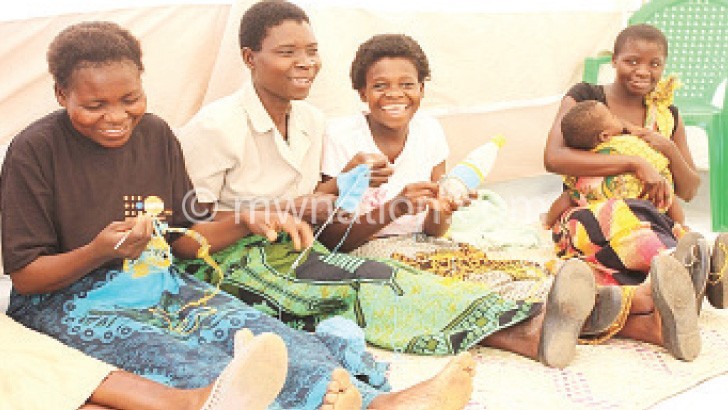Beyond 16 days of annual activism
Early Monday morning, a crowd swarmed Mzuzu Botanical Garden on the edge of Zolozolo Township to see a 27-year-old woman Alice Mwandira lying in a pool of blood.
She died in a brutal attack the previous night.
Mzuzu Police station deputy spokesperson Cecila Mfune says the woman from Shonga Village, Traditional Authority (T/A) Mtwalo in Mzimba was murdered 10 metres away from the forest and later dumped deep in the forest.
Apparently, Mfune says, Mwandira was murdered in a plot by her former husband who did not move on with life after separation.
“We are hearing that the woman was screaming, mentioning her former husband and pleading with him to leave her alone,” says Mfune.
The case, still under investigation, is one of numerous incidents of dehumanising gender-based violence (GBV). Nothing can be worse than death.
This month, the chilly city has registered two cases of murder resulting from gender-based violence.
The other case took place at Hilltop Township where Alex Mbisa, 34, who is on the run, reportedly killed his wife Enifa Goba, 33, on suspicion that she had an extra-marital affair.

November is dedicated to abuses on women’s rights.
Today, the International Day for the Elimination of Violence Against Women marks the start of 16 days of activism which end on the World Human Rights Day on December 10.
The annual campaign against gender-based abuses does not only link violence against women and human rights, but galvanises support and action by individuals and organisations around the world to call for the prevention and elimination of brutality against women and girls.
In recent years, the United Nations Secretary General Ban Ki-moon introduced a campaign known as Unite to End Violence against Women which proclaimed the 25th of each and every month as Orange Day to raise awareness of and take action to end violence against women and girls.
The campaign uses orange as the official colour to symbolise a future free from violence against women and girls. This year, the campaign calls on all countries to “orange the world” and step up efforts to raise money in ending violence against women and girls.
Malawi will not be left behind in the orange movement as various organisations have heeded the call. Maestros Leadership Company, for instance, is encouraging the masses to take one’s picture while holding a placard or paper with the theme Orange the World: End Violence against Women and Girls.
They want the pictures to flood their social media pages on Instagram and Twitter pages.
Speaking in New York on Monday, Ban said statistics on murder victims as a result of gender-based violence are alarming.
“This is truly a matter of life and death. In some countries, as many as 70 percent women report having experienced physical or sexual violence from an intimate partner. In some countries, intimate partner violence accounts for between 40 and 70 percent of female murder victims,” the UN Secretary General said.
National Police spokesperson James Kadadzera could not provide a national picture as he says the secutity agency is still to come up with the total from all police stations’ victim support units.
However, he rated wife battering as the most reported victimisation, saying more cases are reported by women than men.
“As police, we mediate and provide counselling. For most of those we have counselled, things change for the better,” he says.
Presently, Kadadzera says the police have put in place outreach programmes in the prevention of gender-based violence.
Gender equality advocate Emma Kaliya says patriarchy is to blame for the rising cases of gender-based violence against women.
She feels women are timid to deal with the vice in families because the society expects them to be submissive, even in the face of violence.
“Women are usually in a dilemma. They come out to report, but would always want to protect the husband. The fear is that exposing the husband will escalate their problems and possibly drive her out of the home. As a result, they choose to remain in an abusive marriage,” says Kaliya.
She says for such abuse to lead to death it means that “violence has been taking place for a very long time only that the partners have been concealing it”.
“Women need to understand that violence is abuse and they need to be assertive to report such an abuse,”says Kaliya.
She says it is difficult to deal with the age-old problem if women themselves do not take part in the fight and stand up for their rights.
She argues: “The issue of gender-based violence is historical. We cannot wake up today and say we will deal with it there and then. It is not possible, not even in developed countries.
“The only way to deal with it is by continuing to strengthen our systems and making people aware about the problem. It is a process.”
She believes the 16 Days Campaign is not even enough to deal with the problem.
Says Kaliya: “the campaign is there to energise and remind ourselves that we still have work to do in liberating people from violence and abusive relationships.” n





